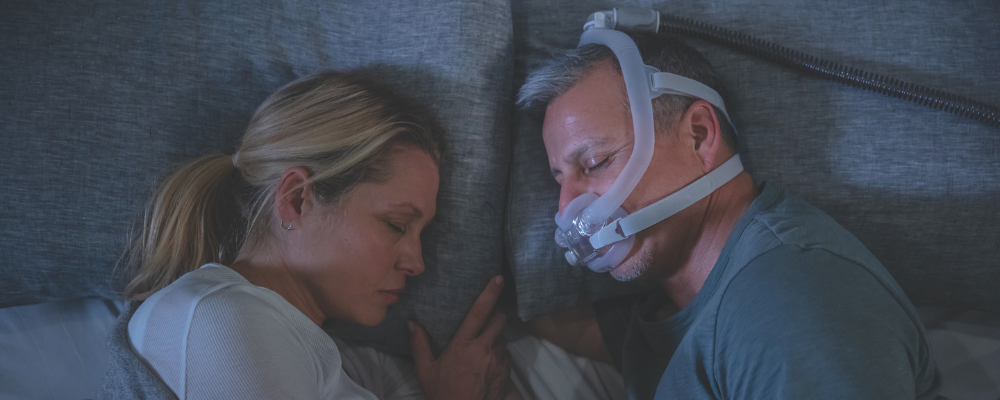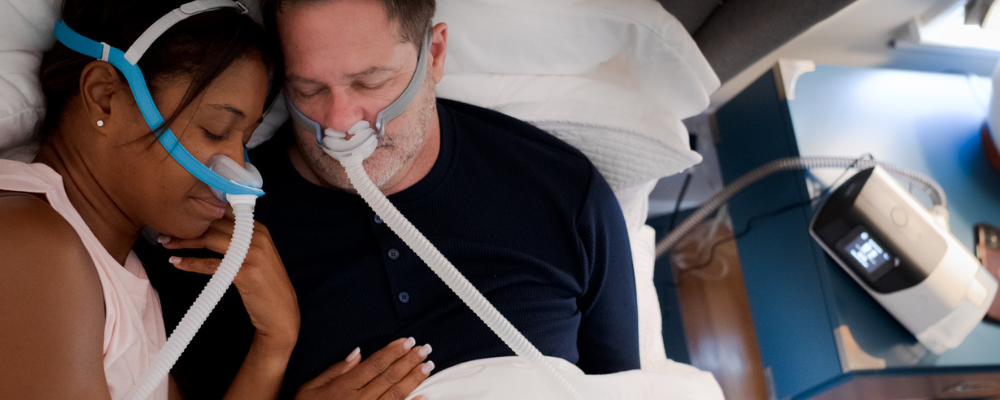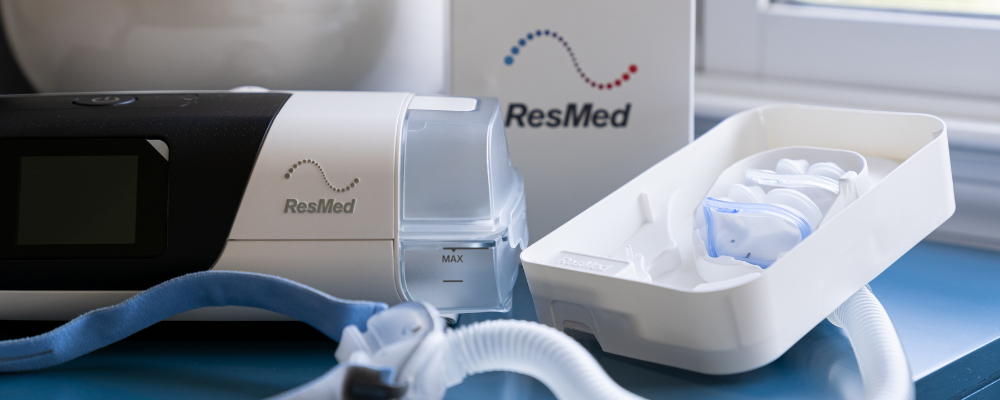Sleep apnea brain fog is definitely a whole mood - albeit a bad one. Do you frequently feel generally sluggish, or just not like your normal self? You may be wondering if underlying obstructive sleep apnea (OSA) is the culprit.
Brain fog is a common symptom of sleep apnea since people with untreated OSA don’t get enough sleep. When you wake up several times during the night, feeling a bit addled in the AM is pretty understandable! Hang in there with us and we’ll explain how the two relate.
IN THIS ARTICLE:
Can Sleep Apnea Cause Brain Fog?
Can Sleep Apnea Treatment Alleviate Brain Fog?
How Do I Find Out if I Have Sleep Apnea?
CPAP SUPPLIES THROUGH INSURANCE:
Aeroflow Sleep is in-network with most primary insurance companies and is accreditted by Medicare and Medicaid. Complete our Qualify Through Insurance Form, and we will automatically check to see if your plan covers CPAP supplies; including a machine, mask, and accessories. ***Must have a sleep study to qualify.***
You will also receive the care and attention every sleep apnea patient deserves; one-on-one clinical support in-home or via telehealth, a dedicated Sleep Specialist you can contact during business hours, and a user-friendly online portal with tailored replacement schedule, important updates and notifications, and educational resources.
Let us take the headache out of healthcare. Join the Aeroflow Sleep family today! It only takes 5-7 minutes to get started.
What Is Brain Fog?
To get us rolling, what we call brain fog is not actually an official medical condition. It’s more like a widely-used term to communicate the idea of feeling generally sluggish. Brain fog is characterized by fatigue and difficulty with cognitive function.
Symptoms Include:
- Lack of mental clarity and ability to organize thoughts
- Short-term memory problems
- Poor focus and concentration
- Low mood
- Irritability
- Confusion
These symptoms can make it difficult to do your work and complete tasks efficiently. People who experience excessive daytime sleepiness often have a hard time coming up with the right word, and may even misplace important items, forget appointments, and act a bit spacey or zoned out. Brain fog can interfere with both work and school, so it’s a pretty big issue when you’re living with it!
What Causes Brain Fog?
All sorts of underlying issues can trigger it, and that’s why it can be tricky to put your finger on exactly where it’s coming from. Here are some of the usual suspects:
- Viral infections like COVID and SARS
- Mental health conditions like depression
- Hormonal imbalances
- Dementia
- Increased Stress
- Nutritional deficiency
- Anemia
- Autoimmune diseases
- Certain medications
- Perimenopause
Can Sleep Apnea Cause Brain Fog?
Let's say it turns out that sleep apnea is at the root of your chronic fatigue and forgetfulness. What is the relationship between the two?
Brain fog is actually a very common symptom of OSA. Obstructive sleep apnea causes interruptions in sleep (sometimes dozens per night) as a result of a physical airway collapse. The resulting lack of oxygen convinces the body that it is suffocating and many sleep apnea patients will repeatedly wake up gasping for air.
Brain fog is just one of the noticeable symptoms. Unfortunately, the ones that aren’t as obvious can be very dangerous. Untreated sleep apnea triggers stress responses in the body. This can result in high blood pressure, heart disease, and even heart failure.


Why Our Brains Need Sleep
Sleep deprivation and offbeat circadian rhythms have major consequences for the human body. Restful sleep is vital for brain plasticity - the ability to process information and remember it. It also helps clear waste products from the brain via the glymphatic system.
Can Sleep Apnea Treatment Alleviate Brain Fog?
The gold standard for treating sleep apnea is continuous positive airway pressure (CPAP). Patients use the CPAP machine and accompanying mask to maintain steady airflow in the upper respiratory system. This constant airflow keeps soft tissues from collapsing so you can breathe and rest easier.
CPAP treatment may be able to alleviate brain fog when apnea is the culprit. This is a subject of ongoing research. One study has shown that CPAP treatment may delay the progression of cognitive impairment that can result from breathing-related sleep disorders.
Some more good news popped up in a study published in Sleep - the official journal of the Sleep Research Society. They found that it’s possible for patients with apnea-related brain damage to recover. With 12 months of CPAP treatment, patients achieved a near-complete reversal of anomalies in the brain’s white matter.
Aeroflow Sleep provides you with the necessary supplies for CPAP treatment, and all parts may be covered up to 100% through insurance, even by Medicare and Medicaid. All you have to do is see if you qualify and have a confirmed sleep apnea diagnosis.
How Do I Find Out if I Have Sleep Apnea?
To determine if sleep apnea is causing your health issues, discuss your symptoms and concerns with your doctor. They may recommend a diagnostic sleep study, where they will monitor various aspects of your physiology while you sleep.
If your AHI (Apnea-Hypopnea Index) is high enough, your doctor may recommend CPAP therapy. AHI is the measure of how many times your breathing stops or slows over the course of one hour of sleep. Someone with mild sleep apnea might have an AHI of 5, while severe OSA starts at around an AHI of 30. Some patients stop breathing over one hundred times every hour!
However, for people with overlapping conditions, CPAP treatment may not be enough. It's possible to begin CPAP therapy and still have symptoms of cognitive dysfunction. If you continue to have brain fog, memory loss, or other cognitive problems, check in with your doctor.
It sounds like a lot to take on, but try not to feel overwhelmed. Your healthcare provider can guide you toward deeper sleep, lower blood pressure, and reduced fogginess!
References
Benveniste, Helene, et al. “The Glymphatic Pathway: Waste Removal from the CNS via Cerebrospinal Fluid Transport.” National Library of Medicine, National Center for Biotechnology Information, 2017, https://pubmed.ncbi.nlm.nih.gov/28466758/.
Castronovo, Vincenza, et al. “White Matter Integrity in Obstructive Sleep Apnea before and after Treatment.” National Library of Medicine, National Center for Biotechnology Information, 1 Sept. 2014, https://www.ncbi.nlm.nih.gov/pmc/articles/PMC4153061/.
Information provided in blogs should not be used as a substitute for medical care or consultation.







